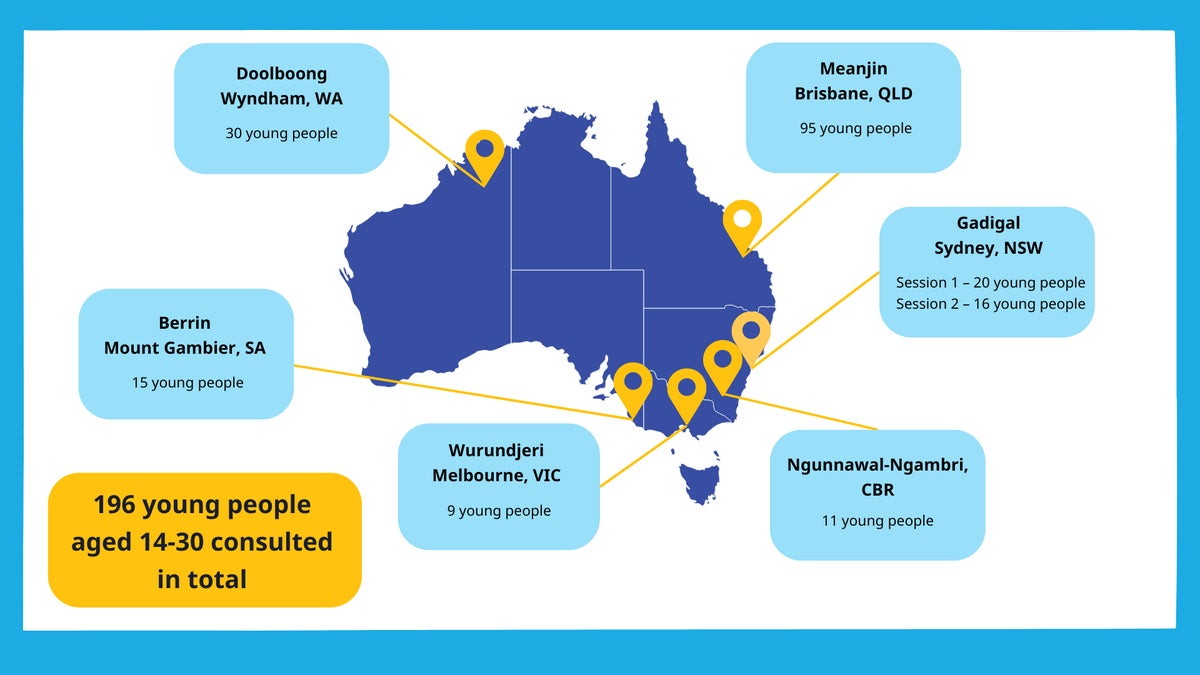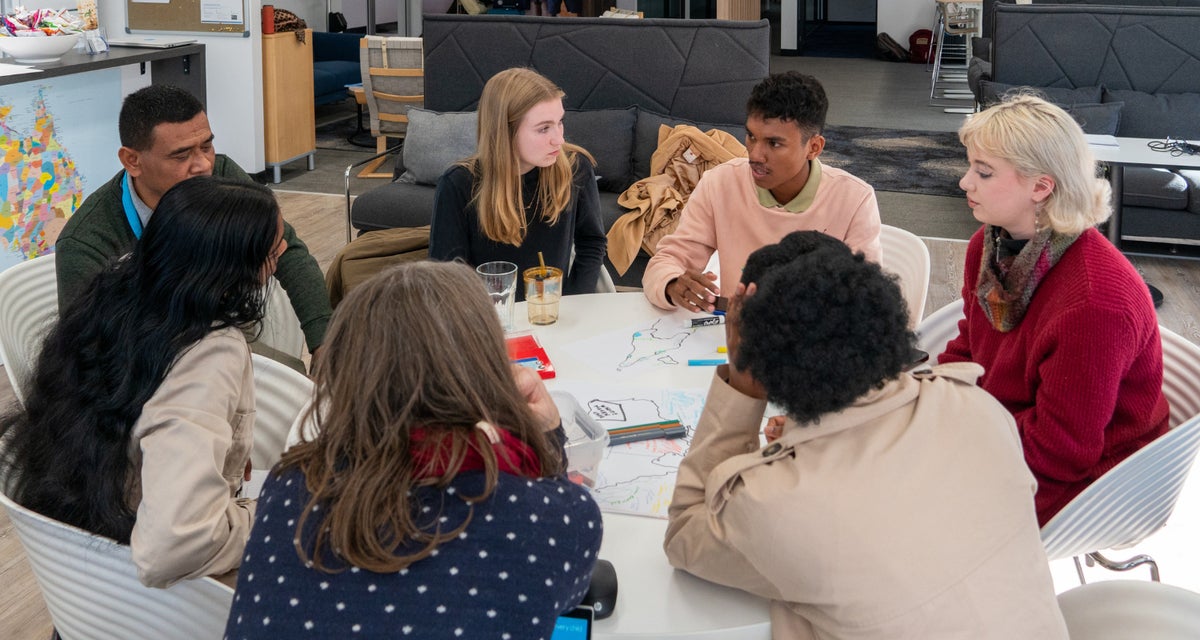"Young people have such valuable perspectives and stories... We ask you to consider and act on the opinions we share. When creating policy and a space for delegations to meet we ask for equitable representation and honest advocacy."
What is an LCOY?
Local Conference of Youth (LCOY) is a national conference for children and young people that focuses on climate change. The overall goal of LCOY is to bring together young people in countries, including Australia, to network, explore and discuss issues affecting them that are related to climate change. It aims to collate young people’s ideas and experiences into a National Children and Youth Statement on Climate Change, which then contributes to the Global Youth Climate Statement that is submitted to the Conference of Parties (COP) climate negotiations.
LCOYs happen worldwide under the umbrella of YOUNGO, the official youth constituency of the United Nations Framework Convention on Climate Change (UNFCCC). They are organised by local youth and youth-led organisations in the respective countries, chosen by YOUNGO.
National Child and Youth Statement 2024
In Australia, the National Child and Youth Statement was prepared after seven face-to-face consultations as part of the Local Conference of Youth (LCOY) Australia 2024. These consultations were held in Wyndham, Western Australia (Doolboong), Mount Gambier, South Australia (Berrin), Melbourne, Victoria (Wurundjeri), Brisbane, Queensland (Meanjin), Sydney, New South Wales (Gadigal), and Canberra (Ngunnawal-Ngambri). The Statement summarises their opinions, perspectives, realities and lists of actions they see as necessary for achieving a just and sustainable future for all.

Themes of the 2024 Local Conference of Youth
First Nations knowledge and practices
Mitigation
Nature
Climate finance
Adaptation
Just transitions
Youth engagement
Gender equality
Throughout this Statement we explore:
- How the Federal Government and private sector can adopt a more ambitious approach to climate adaptation, mitigation and a just transition.
- Accountability for wealthy nations to abide by their international obligations and pay their fair share of climate financing.
- How to best implement a just climate transition to ensure no one is left behind.
- How to meaningfully include perspectives, knowledge, and practices of First Nations and Pacific young people in climate mitigation and decision-making.
- The threat climate change poses to the rights and wellbeing of marginalised groups including women and girls, LGBTQIA+ people, and people of colour and how their voices can be amplified in the climate space.
- The importance of restoring ecosystems and protecting biodiversity to ensure that future generations can experience and benefit from Australia’s unique environment.
- How to ensure children and young people now and into the future are better educated about climate change and have a voice in decisions which impact them.

Key Highlights
Children and young people in Australia want:
- Greater ambition from the Federal Government to mitigate the impacts of climate change and an urgent transition to renewable energy.
- Wealthier nations including Australia to pay their fair share of climate financing.
- First Nations and Pacific knowledge and practices to be embedded within climate action.
- Better mechanisms to be meaningfully included in domestic and international climate decision-making, including marginalised groups like women and girls, LGBTIQA+ individuals and people of colour.
- To see more holistic and engaging climate education included in the Australian curriculum.
How were young people involved in the design of the LCOYs and development of the final Statement?
The LCOYs were designed and led by young people, for young people. Seventeen young people were involved in an organising group, including representatives from the youth led organisation Australian Youth for International Climate Engagement (AYFICE). UNICEF Australia and Plan International Australia provided support and guidance to this group. They researched what young Australians were already feeling and thinking about climate change; prepared and facilitated the LCOY sessions; and consolidated the findings into the Statement.





